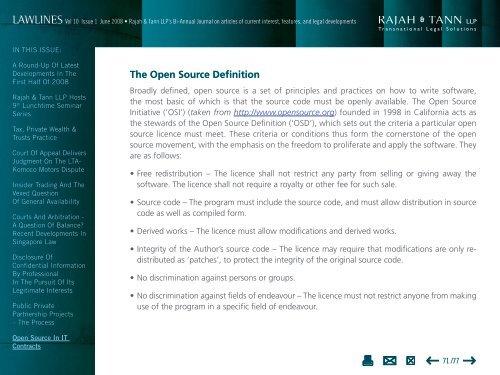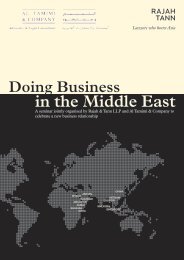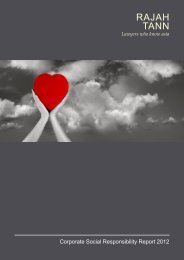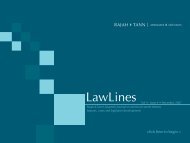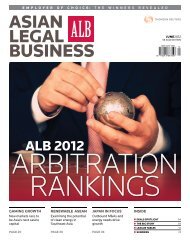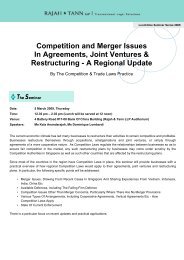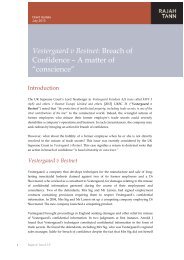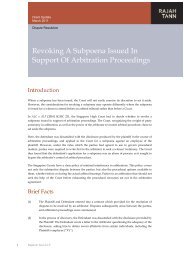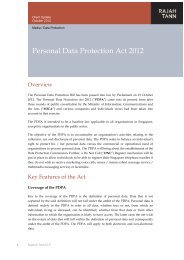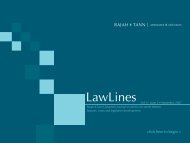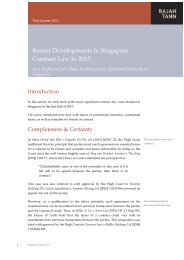Lawlines Vol 10 Issue 1 - eOASIS - Rajah & Tann LLP
Lawlines Vol 10 Issue 1 - eOASIS - Rajah & Tann LLP
Lawlines Vol 10 Issue 1 - eOASIS - Rajah & Tann LLP
You also want an ePaper? Increase the reach of your titles
YUMPU automatically turns print PDFs into web optimized ePapers that Google loves.
<strong>Vol</strong> <strong>10</strong> <strong>Issue</strong> 1 June 2008 • <strong>Rajah</strong> & <strong>Tann</strong> <strong>LLP</strong>’s Bi-Annual Journal on articles of current interest, features, and legal developmentsIN THIS ISSUE:A Round-Up Of LatestDevelopments In TheFirst Half Of 2008<strong>Rajah</strong> & <strong>Tann</strong> <strong>LLP</strong> Hosts9 th Lunchtime SeminarSeriesTax, Private Wealth &Trusts PracticeCourt Of Appeal DeliversJudgment On The LTA-Komoco Motors DisputeInsider Trading And TheVexed QuestionOf General AvailabilityCourts And Arbitration -A Question Of Balance?Recent Developments InSingapore LawDisclosure OfConfidential InformationBy ProfessionalIn The Pursuit Of ItsLegitimate InterestsPublic PrivatePartnership Projects– The ProcessThe Open Source DefinitionBroadly defined, open source is a set of principles and practices on how to write software,the most basic of which is that the source code must be openly available. The Open SourceInitiative (‘OSI’) (taken from http://www.opensource.org) founded in 1998 in California acts asthe stewards of the Open Source Definition (‘OSD’), which sets out the criteria a particular opensource licence must meet. These criteria or conditions thus form the cornerstone of the opensource movement, with the emphasis on the freedom to proliferate and apply the software. Theyare as follows:• Free redistribution – The licence shall not restrict any party from selling or giving away thesoftware. The licence shall not require a royalty or other fee for such sale.• Source code – The program must include the source code, and must allow distribution in sourcecode as well as compiled form.• Derived works – The licence must allow modifications and derived works.• Integrity of the Author’s source code – The licence may require that modifications are only redistributedas ‘patches’, to protect the integrity of the original source code.• No discrimination against persons or groups.• No discrimination against fields of endeavour – The licence must not restrict anyone from makinguse of the program in a specific field of endeavour.Open Source In ITContracts71 /77


